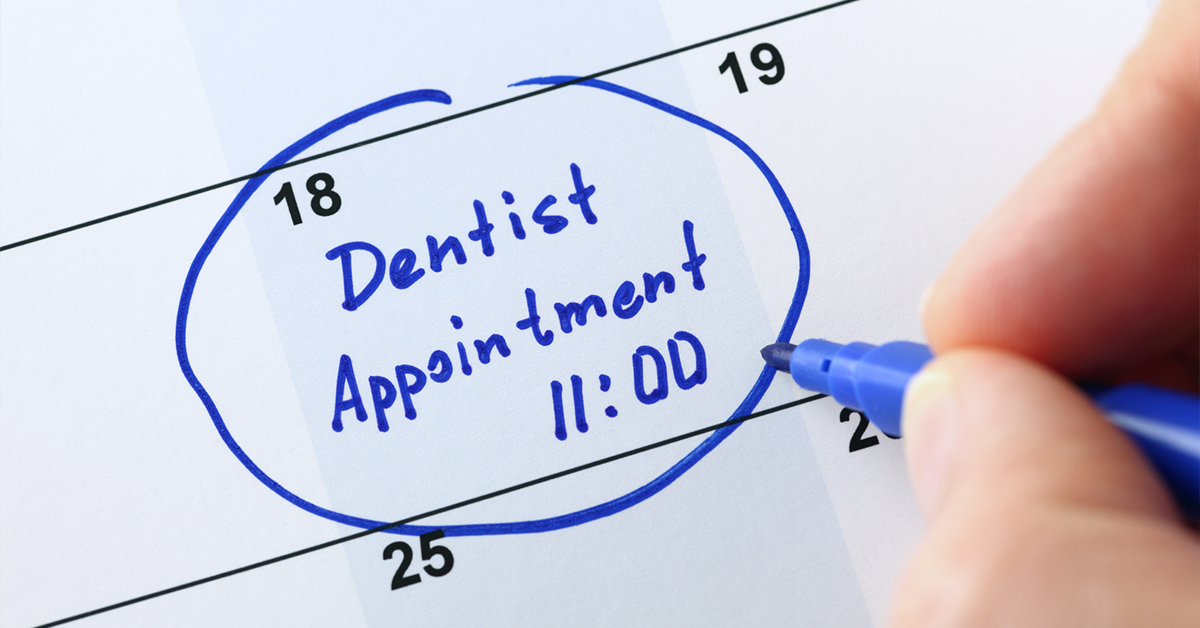When COVID-19 took hold in the United States, some patients put their routine dental care on hold. Then, as states across the nation issued stay-at-home orders and the American Dental Association recommended the postponement of all elective procedures, practice owners were forced to reschedule or even cancel routine care appointments.
Then, as dentist offices reopened, many practices were forced to take on a reduced schedule to allow for proper cleaning and sterilization between patients. The use of additional personal protective equipment (PPE) and investment in sterilization equipment has meant additional costs associated with operating during the pandemic. Now that most dental offices are fully open again, it is even more important for dental practice owners to have a plan for reducing cancelations and no-shows.
We asked David R. Rice, DDS, founder of igniteDDS to share some steps dental practices can take to reduce cancellations and no-shows. The following is what he shared with us.
The theory
For better or worse, we teach people how to treat us. When we want to teach our patients to value their dental appointments, we can take a page from our salon friends (see video below).
The keys to eliminating cancellations and no-shows
- This is not about punishing patients.
- This is about an internal system that holds our patients and our dental team accountable.
- When cancellation or no-show No. 1 occurs, the patient is not rescheduled before two weeks later.
- When cancellation or no-show No. 2 occurs, the patient is not rescheduled before two months later.
- When cancellation or no-show No. 3 occurs, the patient is placed on the VIP list.
- That means, as patients, they call the office any day they can make it in. We assess if we have availability. If we do, when they do, we make it happen. If we do not, they are welcome to call and try another day.
3 steps to stop cancellations and no-shows
1. Begin with the end in mind.
If you could reduce your cancellations and no-shows by 50%, 75%, or more, what would that do for your bottom line? Think about how you might be willing to share that win with your team.
2. Hold a 60-minute, non-lunch time, team meeting.
This is your opportunity to overcome a major practice production-killer. Having ample, focused time will set the tone for your success.
Define the win. Refer to step one and share your goals. Be specific (we want to reduce our cancellations and no-shows by X%.) How you reward your team is up to you. Creating a team win will ensure your long-term success. Need help? CLICK HERE.
Define the system. Per our keys above, once your team sees the win, share the two weeks, two months, VIP process. Thorough understanding is critical, so here are two pro tips:
- If your practice is like most, you have one or two go-to team members who learn fast and are always highly engaged. Ask one of them to share the system back in front of the team. This will help you know your go-to team member(s) get it. It will also set you up for tip two.
- Rather than asking the balance of your team if there are any questions, ask what you’ve missed. This takes the pressure off your team and allows them to ask minus any insecurity.
Set timelines and measure. You’ve established what percentage reduction of cancellations and no-shows you wanted with your goals. It’s time to establish when you’re going to begin (I’d recommend immediately). It’s also time to establish how and when your team will report back and share how it’s going, as well as, how successful you are.
Create accountability. Please see our creating accountability guide for details. That said, once everyone understands the win and everyone agrees to create it, it’s time to get it in writing. Don’t panic. This is a simple, one-page document that states what you’ve all agreed to.
3. Follow through.
This step is everything. Follow through and you’ll not only succeed with reducing your cancellations and no-shows, you’ll show your team solid leadership.
- Warning: If you don’t intend on following through, please, do not attempt to make a change. You will teach your team you don’t mean what you say. That may seem insignificant in the moment. Eventually, however, they will question other asks you make.
Friends, I learned this system from a great friend 25 years ago and I’ve used it in my practice successfully since. I’ve also helped too many practices implement it. I’ll leave you with two thoughts.
- First, you can do this!
- Second, if you have any question on making it happen, ASK FOR HELP!
The revenue you will generate with this simple system will change your life.
About the author
David R. Rice, DDS, is the founder of the nation’s largest student and new dentist community, igniteDDS. Dr. Rice travels the world speaking and connecting today’s top young dentists with tomorrow’s most successful dental practices. In addition to igniteDDS, Dr. Rice maintains a team-centered restorative and implant practice in East Amherst, N.Y.
– – –



